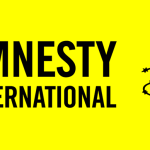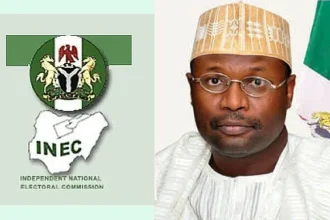In a major fiscal policy shift, the Federal Government has banned all Ministries, Departments, and Agencies from entering into contracts denominated in foreign currencies.
According to The PUNCH, the directive outlined in the 2025 Appropriation Act Implementation Guideline, mandates that all official contracts must be quoted strictly in Nigerian Naira, except where express approval is obtained from the Minister of Finance and Coordinating Minister of the Economy.
The guideline, issued by the Budget Office of the Federation, marks a significant move to curtail Nigeria’s overreliance on foreign exchange in government transactions.
“MDAs are to ensure that their contracts are wholly denominated in Nigerian Naira,” the document reads. “No MDA is authorised to enter a contract denominated in any foreign currency without the prior approval of the Honourable Minister of Finance and the Coordinating Minister of the Economy.”
In addition to currency regulations, the new policy introduces tighter controls on budget performance, personnel cost management, and financial reporting. MDAs are now required to submit monthly budget performance reports by the 15th of the following month or risk being denied access to future capital or recurrent budget releases.
To promote transparency and eliminate waste, the Budget Office also directed regular reviews of payroll data through the Integrated Personnel and Payroll Information System, aimed at removing fictitious entries and unjustified allowances.
“Any unjustified salary payments or entries on nominal rolls will be scrutinized and sanctioned,” a senior Budget Office official stated on condition of anonymity.
MDAs are also prohibited from making payments for promotions or arrears through IPPIS without prior clearance from the designated Committee on Payment of Promotions and Salary Arrears.
Similarly, any increase in personnel costs, through fresh recruitment, payment of allowances, or staff replacements, must be formally approved.
“The era of indiscriminate employment and inflated wage bills is over,” the official said. “We are enforcing discipline in budget execution and aligning spending with national fiscal priorities.”
The guidelines further specify that all non-regular allowances must be reconciled monthly, with details of utilisation and surplus funds submitted for audit.
The Auditor-General of the Federation will oversee compliance.
A new recruitment policy was also introduced to maintain a balanced workforce structure, including adherence to the statutory five per cent job quota for persons with disabilities. Going forward, all financial clearance requests must disclose compliance with this policy.
On tax-related matters, MDAs have been reminded that they lack the authority to grant tax exemptions.
“All exemptions must follow due process and be formally approved through the appropriate legal and fiscal channels,” the document stressed.
The directive also addresses engagements with development partners. All requests for support must pass through the International Cooperation Department of the Ministry of Budget and Economic Planning. Any form of external support—whether financial or material—must be documented and reported monthly.
Reacting to the development, Lagos-based economist Adewale Abimbola hailed the move as a strategic attempt to curb currency abuse in public procurement. “This directive will limit access to foreign exchange through dubious contract arrangements. It is a necessary fiscal control mechanism,” he said.
Dr. Aliyu Ilias, a development economist, described the policy as a long-overdue solution to Nigeria’s forex crisis. “Too many public contracts are needlessly tied to the dollar. This practice fuels demand for foreign currency and weakens the Naira,” he remarked.
He advised the government to go beyond requiring ministerial approval and ban foreign-denominated contracts altogether. “We need to create less demand pressure on the dollar. Enforcing Naira-only transactions in public procurement can help stabilize our economy,” Ilias added.
The guideline aligns with President Bola Tinubu’s Renewed Hope Nigeria First policy, which prioritizes the use of local goods, services, and expertise in public spending. According to the Minister of Information and National Orientation, Mohammed Idris, “This policy puts Nigeria at the centre of every kobo the government spends. An Executive Order is already underway to give it full legal backing.”
Analysts say the success of these reforms will depend on consistent enforcement and political will. As Abimbola noted, “Without strict monitoring and consequences for non-compliance, the initiative could falter like previous efforts.”
The government has also mandated that all capital projects valued at ₦150 million and above must include Global Positioning System coordinates, a move designed to improve tracking and verification of projects nationwide.







